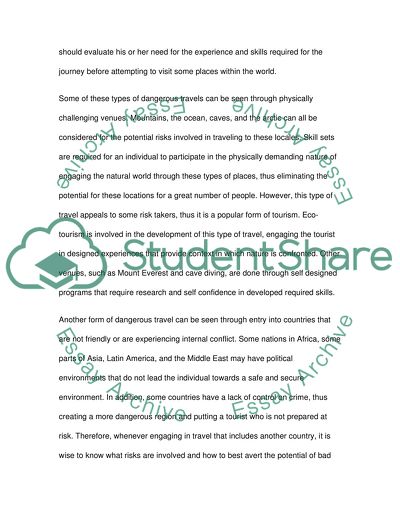Cite this document
(“Tourist in dangerous places Research Paper Example | Topics and Well Written Essays - 2500 words”, n.d.)
Retrieved from https://studentshare.org/family-consumer-science/1420873-tourist-in-dangerous-places
Retrieved from https://studentshare.org/family-consumer-science/1420873-tourist-in-dangerous-places
(Tourist in Dangerous Places Research Paper Example | Topics and Well Written Essays - 2500 Words)
https://studentshare.org/family-consumer-science/1420873-tourist-in-dangerous-places.
https://studentshare.org/family-consumer-science/1420873-tourist-in-dangerous-places.
“Tourist in Dangerous Places Research Paper Example | Topics and Well Written Essays - 2500 Words”, n.d. https://studentshare.org/family-consumer-science/1420873-tourist-in-dangerous-places.


